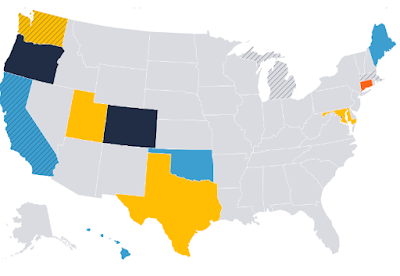Mushroom Laws by State
Legal Status of Mushrooms in the US
Mushrooms are classified as a Schedule I drug under the Controlled Substances Act, which means that they are considered to have a high potential for abuse and no accepted medical use. However, some states have decriminalized the possession and use of mushrooms for personal and medical purposes.
States Where Mushrooms Are Legal
As of 2021, only two states have legalized the use of mushrooms:
- Oregon: In November 2020, Oregon became the first state to legalize the possession and use of psilocybin, the psychoactive ingredient in magic mushrooms, for therapeutic purposes. The law allows licensed therapists to administer psilocybin to patients with depression, anxiety, and other mental health conditions.
- Washington, DC: In March 2021, Washington, DC, passed a law that decriminalizes the possession and use of entheogenic plants, including mushrooms, for personal and spiritual purposes. The law does not legalize the sale or distribution of mushrooms.
States Where Mushrooms Are Decriminalized
Several states have decriminalized the possession and use of mushrooms, meaning that they are considered a low priority for law enforcement and are unlikely to result in criminal charges:
- California: In January 2021, the city of Santa Cruz decriminalized the possession and use of mushrooms and other entheogenic plants for personal and spiritual use. Oakland and Santa Ana have also decriminalized mushrooms.
- Colorado: In May 2019, Denver became the first city in the US to decriminalize the possession and use of mushrooms. Since then, several other cities and counties in Colorado have followed suit.
- Michigan: In September 2020, the city of Ann Arbor decriminalized the possession and use of mushrooms and other entheogenic plants for personal use.
- Massachusetts: In January 2021, the city of Somerville decriminalized the possession and use of mushrooms and other entheogenic plants for personal use.
- Washington: In November 2019, the city of Seattle became the first city in Washington to decriminalize the possession and use of mushrooms. Since then, several other cities in the state have followed suit.
States Where Mushrooms Are Illegal
In all other states, mushrooms are illegal to possess and use for any purpose. Possession and distribution of mushrooms can result in criminal charges and fines.
Pros and Cons of Mushroom Legalization
Pros
- Potential therapeutic benefits for mental health conditions
- Reduced criminalization of individuals using mushrooms for personal and spiritual reasons
- New opportunities for research into the medical benefits of mushrooms
Cons
- Potential for misuse and abuse of mushrooms
- Lack of regulation and quality control for mushrooms sold on the black market
- Possible increase in public safety concerns, such as driving under the influence of mushrooms
FAQs
Q: What are the potential benefits of mushrooms for mental health?
A: Research suggests that psilocybin, the psychoactive ingredient in mushrooms, may help treat depression, anxiety, and PTSD by promoting new neural connections in the brain and reducing activity in the default mode network.
Q: What are the risks of using mushrooms?
A: Mushrooms can cause a range of physical and psychological effects, including nausea, hallucinations, and paranoia. In rare cases, mushrooms can trigger persistent psychotic symptoms or flashbacks.
Q: Does the legalization of mushrooms mean that they are safe to use?
A: No. Legalization does not guarantee the safety or purity of mushrooms sold on the black market. It is important to use mushrooms under the guidance of a licensed therapist or in a controlled, safe environment.
Q: Why are mushrooms classified as a Schedule I drug?
A: Mushrooms are classified as a Schedule I drug because they contain psilocybin, a psychoactive substance that has a high potential for abuse and no accepted medical use.

